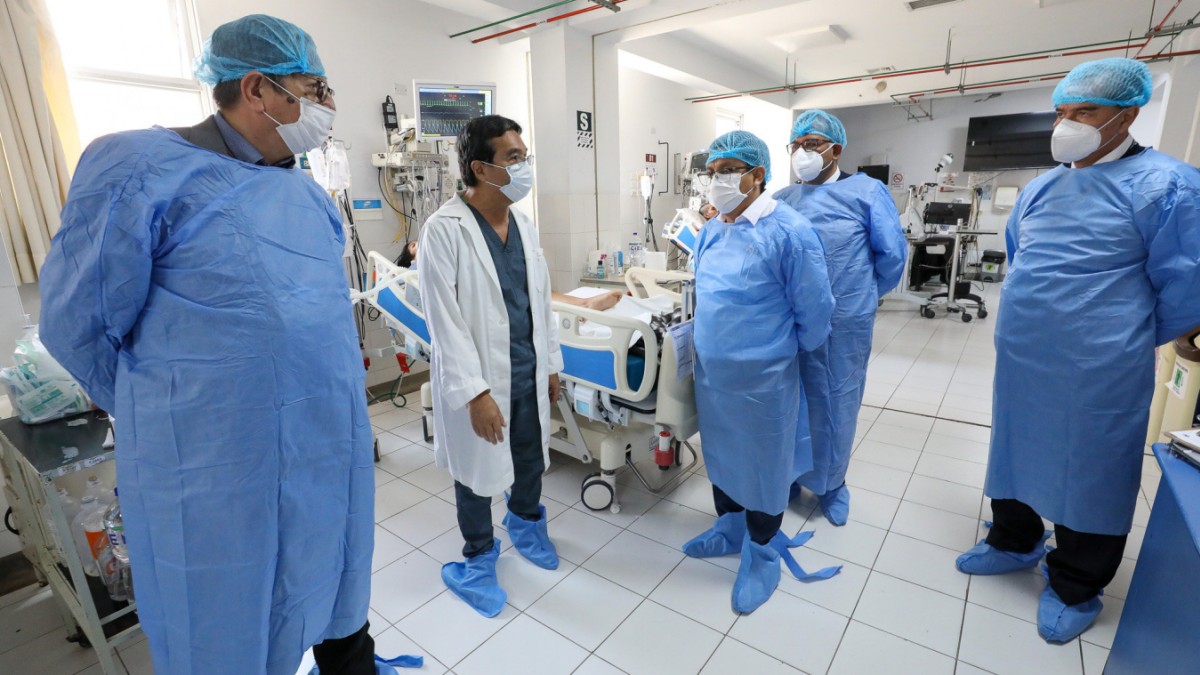In Peru, there are currently an exceptional number of cases of what is actually a rare disease. That is why the government of the South American country has declared a three-month health emergency. According to the Ministry of Health, 182 cases of Guillain-Barré syndrome (GBS) have been recorded in Peru since January. Four of those affected died. 31 patients are still in the hospital, the remaining 147 have been released. GBS is a nerve disease in which antibodies of its own attack the protective covering of the nerves – very similar to multiple sclerosis. This damages the nerves.
Those affected usually form the antibodies in response to an infection. “They are supposed to fight the pathogens, but then inadvertently turn against their own nerves,” says Peter Berlit, Secretary General of the German Society for Neurology. Triggers can be various viruses and bacteria. GBS is often preceded by an infection of the gastrointestinal tract, for example with Campylobacter bacteria, or of the upper respiratory tract, for example with cytomegaloviruses. The Sars-CoV-2 pandemic coronavirus can also lead to GBS, it has been described in up to eight out of 100,000 infected people, the numbers refer to Europe and the USA. Vaccination against Covid-19 results in GBS much less frequently when a vector vaccine was used. Normally, one to two people in every 100,000 suffer from GBS in the general population, but this has increased to four per 100,000 people in temporal relation to the vector vaccines. “But there is only a risk for the vector vaccines from Astra Zeneca and Johnson & Johnson,” says Peter Berlit. “The mRNA vaccines don’t have this complication.”
A connection with the vaccination against corona viruses is unlikely
Usually it remains with isolated cases, outbreaks of GBS are rare. In Peru, however, there was already a larger wave in the summer of 2019, which scientists from the Lima health authority, together with US colleagues, traced back to the stomach germ Campylobacter jejuni, according to an analysis presented in the journal Emerging Infectious Diseases in 2020. At that time, 683 suspected or confirmed GBS cases were recorded. In French Polynesia, a surge in GBS cases followed a wave of Zika infections in 2013/14.
“We currently have the disease under control,” Peru’s Health Minister César Vásquez told journalists last Saturday. Since there has been a significant increase in cases in recent weeks, it has become necessary to declare a state of emergency. He initially gave no information on the reasons for the increase. The declaration of emergency will ensure that sufficient drugs to treat the syndrome are made available to the hospitals, it said. In addition, the epidemiological surveillance will be intensified and the reference laboratories for the analysis of samples will be strengthened.
Neurologist Peter Berlit considers a gastrointestinal germ such as Campylobacter or a virus to be the most likely cause of the new outbreak. According to Berlit, it is “most likely” not a consequence of the Covid 19 vaccinations, as is currently being suspected in social media. “If GBS occurs as a result of vaccination, it typically develops within two to four weeks after vaccination.” In Peru, vector vaccines were often used and mRNA vaccines were rarely used, “but the pandemic is over, the big vaccination campaigns are over”. It is therefore very unlikely that there is a connection with Covid-19 or the corona vaccinations.
According to Berlit, there is some evidence that Campylobacter is the cause, because infection with this bacterium usually leads to relatively severe GBS. “In Peru there are quite difficult courses right now, so that would be good,” he says. “Patients have increasing paralysis, and they often have to be ventilated because the paralysis also affects breathing.” After other infections, on the other hand, such a serious GBS rarely develops – this also applies to Sar-CoV-2 and also to the Covid vaccinations. “The courses were rather mild there. Sensory disturbances or bilateral facial paralysis are described more frequently, but no paralysis of the extremities,” says Berlit.
Regardless of the cause of GBS, the therapy is always the same. Doctors try to wash the patients’ aggressive antibodies out of their blood or to render them harmless by administering immunoglobulins. In the vast majority of cases, this is successful if treatment is started promptly, emphasizes Berlit: “GBS usually heals without consequences, and only rarely does something remain.”
